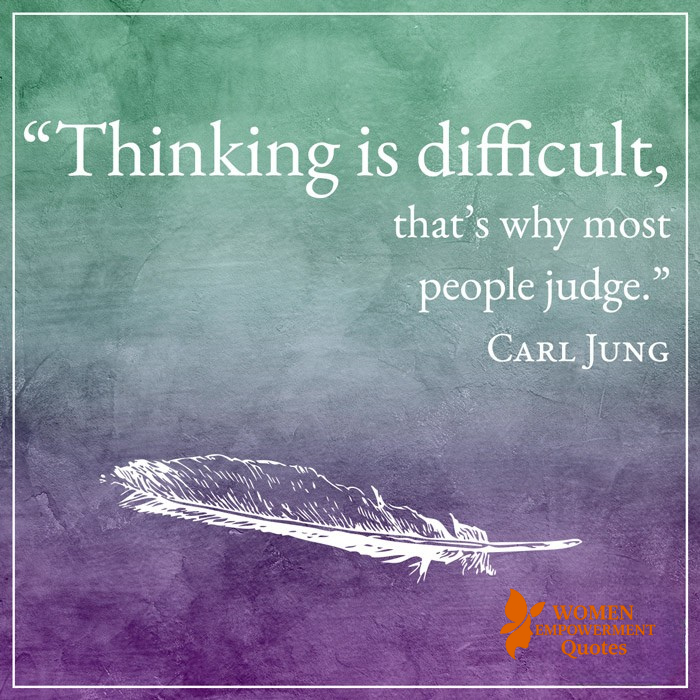
A Deeper Look into Carl Jung’s Wisdom on True Understanding
In a world quick to judge and slow to understand, Carl Jung’s insight cuts deep: real thinking—clear, unbiased, and self-aware—is one of the hardest things we can do.
Judging comes naturally. It’s fast, effortless, and often feels satisfying. We categorize people and situations based on fragments of truth shaped by our experiences and biases. But this mental shortcut has a cost: it robs us of understanding, compassion, and connection.
Jung warned us about this. He understood that our minds crave simplicity. We seek patterns that fit our stories, even if they distort reality. But when we rely too heavily on judgment, we risk misunderstanding others, reinforcing stereotypes, and closing ourselves off to growth.
To truly think, we must pause. We must be willing to question what we believe, to listen without needing to be right, and to seek truth—even when it’s uncomfortable. This kind of thinking asks us to confront our assumptions, sit with uncertainty, and accept that we might not know as much as we think we do.
Jung also taught us that each person experiences the world differently—some through logic, others through feeling or intuition. There is no one right way to perceive reality. By respecting these differences, we open ourselves to a fuller picture of humanity.
He believed that within each of us lies a shadow—a part of the self we often avoid. But in facing it, we begin the journey toward self-awareness. Only then can we think beyond surface impressions and reach for wisdom that goes deeper than opinion.
Symbols, dreams, and archetypes—all central to Jung’s work—remind us that meaning is not always obvious. Sometimes the truth speaks in whispers, not arguments. And often, true clarity comes not from thinking louder, but from thinking deeper.
Carl Jung’s legacy is a call to slow down, to reflect before we react, and to build bridges where our minds might otherwise build walls. Judgment is easy. But if we want to live with more understanding, kindness, and insight, we must do the harder thing.
We must learn to think.
Related Quotes:
“It is the mark of an educated mind to be able to entertain a thought without accepting it.” — Aristotle
“The greatest deception men suffer is from their own opinions.” — Leonardo da Vinci
“The fool doth think he is wise, but the wise man knows himself to be a fool.” — William Shakespeare
“He who knows nothing is closer to the truth than he whose mind is filled with falsehoods and errors.” — Thomas Jefferson
“As long as a person doesn’t admit he is defeated, he is not defeated – he is merely wavering.” — Emperor Meiji Mutsuhito
Write Your Prayer